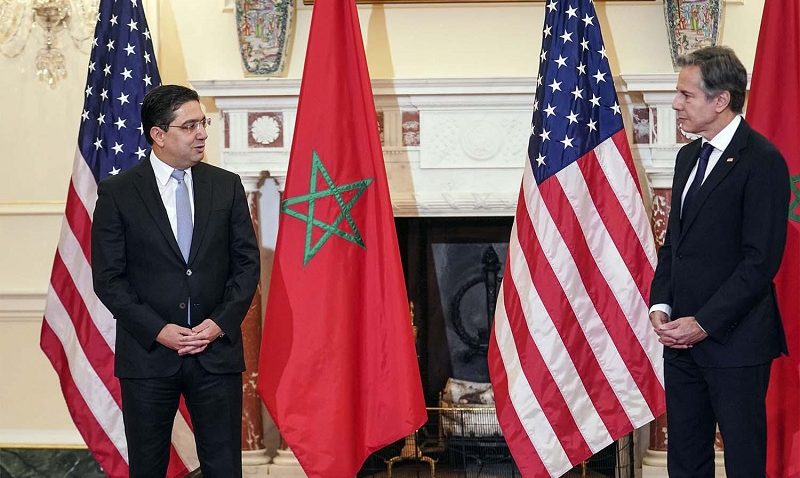Since the beginning of May, the Sahara conflict has witnessed events that seem relatively worrying for Moroccan diplomacy, notably the ambiguous position of the United States, as well as Italy’s decision to open a consular services centre in the city of Tindouf to provide services to Algerians and “Saharawi refugees”, according to a diplomatic communiqué from Rome.
The beginning of this reversal for Moroccan diplomacy began with the participation of the Egyptian Defence Minister in a meeting of the quartet comprising defence officials from Algeria, Libya and Egypt, as well as the Polisario Front movement, in the capital Algiers from 2 to 6 May. The presence of Egypt and Libya at this meeting is a source of concern for Rabat, as these two countries do not recognise the state declared by the Polisario Front. Tunisia and Mauritania chose not to participate in the summit.
On 14 May, US Secretary of State Anthony Blinken discussed by phone with his Moroccan counterpart Nasser Bourita the development of bilateral relations, and then exchanged views on international issues such as Syria’s return to the Arab League and Russia’s war against Ukraine, as well as on the Israeli-Palestinian file.
Afterwards, the official statement of the US diplomacy on the Sahara conflict contains new, even disconcerting language, as follows: “Secretary Blinken affirmed full U.S. support for UN Personal Envoy of the Secretary-General Staffan de Mistura as he intensifies the UN process on Western Sahara toward an enduring and dignified political solution for the people of Western Sahara and the region”.
The statement is a precedent, as it reflects an ambiguous perception and is even more ambiguous than previous statements. In this sense, the statement avoided referring to Moroccan sovereignty over the Sahara, and is a deliberate downplaying of former US president Donald Trump’s decision to recognise this sovereignty in December 2020 in the wake of the Abraham Accords. At the same time, it highlights the management of the UN Secretary General’s special envoy, without referring to autonomy. Finally, it highlights the Saharawis as a people.
A source who knows the bilateral relations well told Alif Post: “Washington is aware of Morocco’s sensitivity towards the Sahara issue, and we wonder: why did it deliberately avoid referring to autonomy, which Morocco considers the best solution to the conflict?
On 16 May, the Italian ambassador to Algeria inaugurated a consular services centre in Tindouf, in southern Algeria, and close to the Tindouf camps, the headquarters of the Polisario Front, which disputes Saharan sovereignty with Morocco. On this occasion, he said that “the centre is not only for Algerian citizens and the region and the Mauritanian business community present, but also for Sahrawi refugees”.
Italy’s decision to establish a consular service centre for the Saharawis in the Tindouf region, on the one hand, may cause tension in relations between Rome and Rabat, and on the other hand, illustrates the great rapprochement between Algeria and Italy over the past two years, since Rome showed, at the beginning of last January, its absolute support for self-determination as a solution to the Sahara conflict. Algeria has chosen Italy as an alternative to France and Spain as a trade partner, especially in the field of energy. Italy’s position will extend to the European institutions by opposing any Spanish initiative to support autonomy as a solution to the Sahara conflict.
Despite the worrying dimension of these events, which are perceived as a setback for Morocco’s interests in the Sahara issue, Rabat’s diplomacy has not commented on them, preferring for the moment to remain silent.

